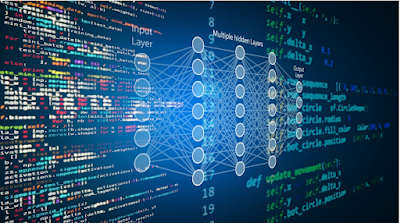|
About Topic In Short: |
|
|
|
Who: Brown University and Massachusetts Institute
of Technology (MIT), led by Ethan Pickering and Themistoklis Sapsis from MIT. |
|
What: The
research introduces an advanced machine learning model called DeepOnet,
combined with active learning techniques, to predict rare disastrous events
like earthquakes, pandemics, and rogue waves, even with limited historical
data. |
|
|
How: By
leveraging statistical algorithms and active learning, the model learns from
available data and seeks new relevant data points, reducing the need for
massive data sets. DeepOnet, a deep neural operator, processes data in two
parallel networks, enabling efficient analysis of vast datasets. |
|
In a groundbreaking
research paper recently published in the prestigious journal Nature
Computational Science, distinguished scholars from Brown University and the
Massachusetts Institute of Technology (MIT) have unveiled an astonishing
machine learning marvel capable of prophesying extraordinary cataclysmic
occurrences, encompassing earthquakes, pandemics, and enigmatic rogue waves.
The fundamental quandary that ensnares these experts in their prophetic
pursuits pertains to the scarcity of data, impeding traditional computational
models from deftly predicting the precise timing of these rare events. However,
this ingenious consortium of researchers has ingeniously surmounted this
formidable obstacle by formulating an advanced machine learning system that
deftly navigates the complexities of these exceptional phenomena.
Embracing
the Enigmatic Nature of Rare Phenomena
Professor
George Karniadakis, a luminary in applied mathematics and engineering at Brown
University, passionately illuminates the stochastic essence that pervades these
rare events, rendering them imbued with probabilities and an inherent
elusiveness. The paucity of historical data further restricts the availability
of copious information requisite for constructing predictive models with
prodigious databases. Nonetheless, unyielding in their scientific pursuit, the
researchers are fervently committed to exploring innovative avenues that prove
effective in the face of data scarcity.
An
Ingenious Synergy: Marrying Statistical Algorithms and Dynamic Learning
With
unyielding determination, the scholarly cadre deftly combines the prowess of
statistical algorithms with an ingenious sequential sampling technique
christened active learning. By harnessing statistical algorithms that demand
lesser data to devise precise forecasts, and imbuing the model with active
learning capabilities, they empower the system to glean knowledge from
available data and actively scour for novel data points crucial for discerning
the desired outcomes. This adept fusion endows the model with unparalleled
predictive prowess, even with a discernibly reduced corpus of data, an
invaluable asset when unraveling the enigma of rare events.
Delving
into the Ingenious DeepOnet: A Profound Neural Operator
The
cornerstone of their groundbreaking study, the remarkable machine learning
model christened DeepOnet, stands as a profound neural operator of unparalleled
magnitude. Its architecture boasts two parallel networks that adroitly handle
copious datasets and myriad scenarios at unprecedented velocities, ultimately
yielding an extensive array of probabilities once it comprehends the
intricacies it seeks. Yet, with such profound capabilities comes a perplexing
conundrum - the reliance on an extensive training dataset poses an imposing
challenge when navigating the realm of rare occurrences.
Empowering
DeepOnet: The Crucial Role of Active Learning in Training
Harnessing
the potential of active learning, the researchers adroitly imbue the DeepOnet
model with an unparalleled ability to discern the key parameters and precursors
indicative of rare events. Unfazed by a dearth of historical data, the model
adeptly identifies and assimilates these vital factors, subsequently enabling
astute prognostications regarding future calamitous events. The team of
scholars adroitly applies this approach across diverse scenarios - from
predicting perilous spikes during pandemics to unraveling and quantifying
enigmatic rogue waves, and even estimating when a ship may fissure under
duress.
Envisioning
the Prospects of Rare Event Prognostication
Intriguingly,
the study showcases that this ingenious amalgamation of advanced machine
learning and active learning techniques markedly outperforms traditional
modeling endeavors. The resulting framework forges a promising trailblazing
trajectory, proficiently unraveling and predicting an assorted array of rare
events. With promising possibilities lying ahead, the potential for accurately
forecasting a wide spectrum of extraordinary events, including climatic cataclysms
akin to hurricanes, lies within their grasp.
Thus
Speak Authors/Experts:
The lead
authors, Ethan Pickering and Themistoklis Sapsis from MIT, passionately echo
their profound enthusiasm for the groundbreaking research they have
collectively orchestrated. Professor George Karniadakis further underscores
that their quest is not merely to incorporate every conceivable data point into
the system, but rather to adroitly anticipate pivotal events and discern their
precursors proactively. In this shrewd manner, they adeptly train the
data-hungry DeepOnet model, even in the face of limited real-life event
instances.
Conclusion:
In
conclusion, the collaborative efforts of the esteemed scholars from Brown
University and MIT have borne fruition, culminating in the creation of an
extraordinary machine learning model proficient in the prediction of rare
cataclysmic events, defying the constraints of historical data scarcity. By
ingeniously merging statistical algorithms with dynamic active learning and
harnessing the profundity of the DeepOnet neural operator, the researchers have
paved an illustrious path towards more precise prognostication of exceptional
phenomena such as earthquakes, pandemics, and rogue waves. This prodigious
framework heralds the promise of bolstering disaster preparedness and
galvanizing forecasting capabilities, ushering in a new era of unparalleled
scientific inquiry.
Image
Gallery
|
|
|
|
|
|
All Images Credit: from References/Resources
sites [Internet] |
Hashtag/Keyword/Labels list:
#MachineLearning
#DisasterPrediction #RareEvents #DeepOnet #ActiveLearning #MIT #BrownUniversity
References/Resources list:
1.
Brown
University: https://www.brown.edu/news/2022-12-19/extreme-events
2.
MIT: https://www.mit.edu/
3.
DeepOnet:
https://www.brown.edu/research/projects/deeponet/
For more such blog posts visit Index page or click InnovationBuzz label.
…till next
post, bye-bye and take-care.




No comments:
Post a Comment